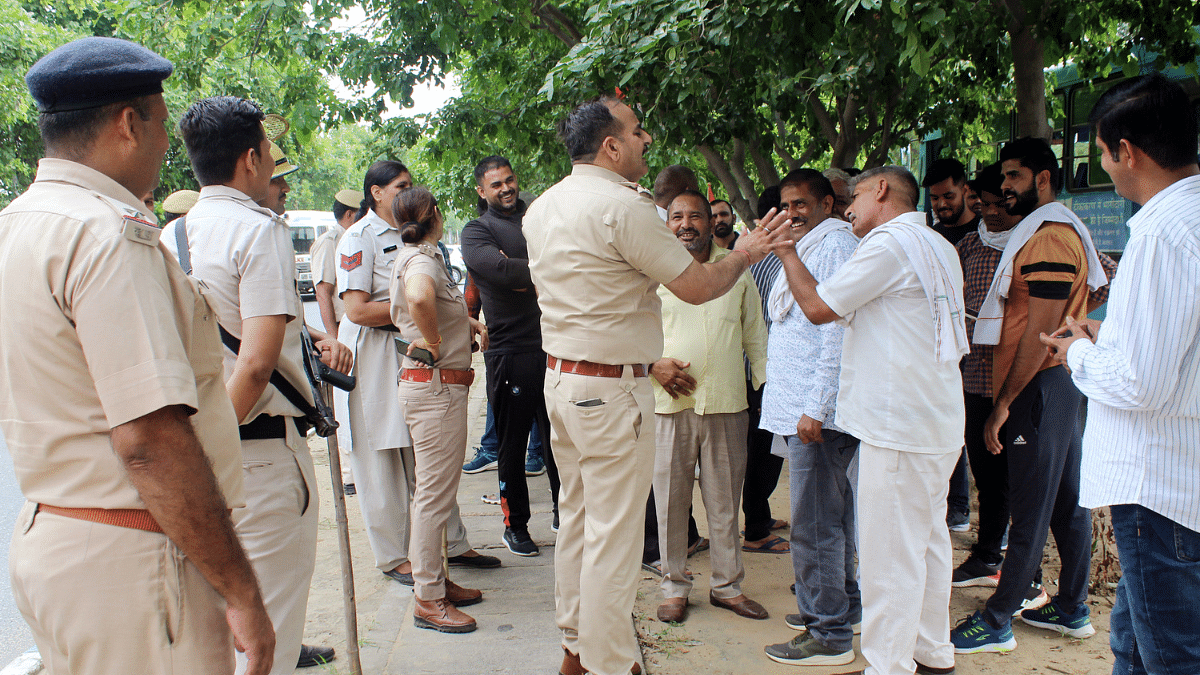Gurugram: Taking a cue from Rajasthan, the Haryana government is preparing to come up with a bill that makes the extreme act of protests with bodies liable to imprisonment of up to one year and a fine of Rs 50,000.
The draft bill, ‘Haryana Mrit Shareer Samman Vidheyak-2023’, proposes to empower the government to cremate such bodies through the local authorities.
The home department submitted the Bill to Home Minister Anil Vij last week for his approval, but he advised the officials to do more homework before the Winter session of the Haryana Assembly.
Vij confirmed to The Print Monday that he has directed the home department to conduct a study to find out bills of such nature passed by other states and the efficacy of legislations. The minister added that he was informed that Rajasthan had passed a similar bill in this regard.
In July, the Ashok Gehlot-led Congress government passed the Rajasthan Honour of Dead Body Bill, 2023 penalising protests with bodies to imprisonment for up to five years along with fine. It makes the family liable for the cremation at the earliest. If the family refuses to do so, the public authorities can do the last rites.
Since the proposed bill empowers officials to take custody of the bodies in case family members sit on protests, Vij elaborated, he wanted some clarifications as well as the impact of such action on the protesters.
“The municipal authorities already have the task of cremating unidentified bodies. We have to ensure that there is no clash between the provisions of those rules with the provisions of the bill. Also, I have told the officials to study the impact of the government action of taking custody of the bodies in the states where it (the law) has already been passed. If we don’t study this impact, tomorrow we may have to face a reaction from the protestors which no government would like to see,” he added.
An official, who is aware of the contents of the draft bill, told The Print that it declares all types of such protests as a criminal offence that can attract imprisonment of up to one year and a fine of up to Rs 50,000.
“Under the provisions of the bill, not only the family members of the deceased, but also those participating in the protest will be liable to be prosecuted. It also provides that authorities can take possession of the body and cremate it on their own so that the dead is not disrespected,” the official said.
Rashtriya Kisan Manch state president Prahlad Singh Bharukhera said the proposed bill was an attempt to suppress the voices of dissent and the right to hold protests.
“No sane persons will like to delay the cremation of their loved ones after their deaths unless the circumstances are such. In most of the cases that I have been part of, I have seen it happen because of the insensitivity of authorities concerned. People resort to such an extreme step when all other steps fail to give results,” Bharukhera said.
Similarly, Rohnat Saheed Samiti convener Pradeep Kaushik said that people resort to such extreme agitations when no other route works. He further gave the example of a villager who died by suicide in September leaving a suicide note accusing some of humiliating him.
“We were on dharna with the demand for justice for our village… Eventually, by the time the authorities accepted our demands, almost a week had passed. No one wants the dead to be disrespected,” Kaushik contended.
(Edited by Tony Rai)
Also Read: Khattar-Vij war escalates as Haryana health minister goes missing in action

